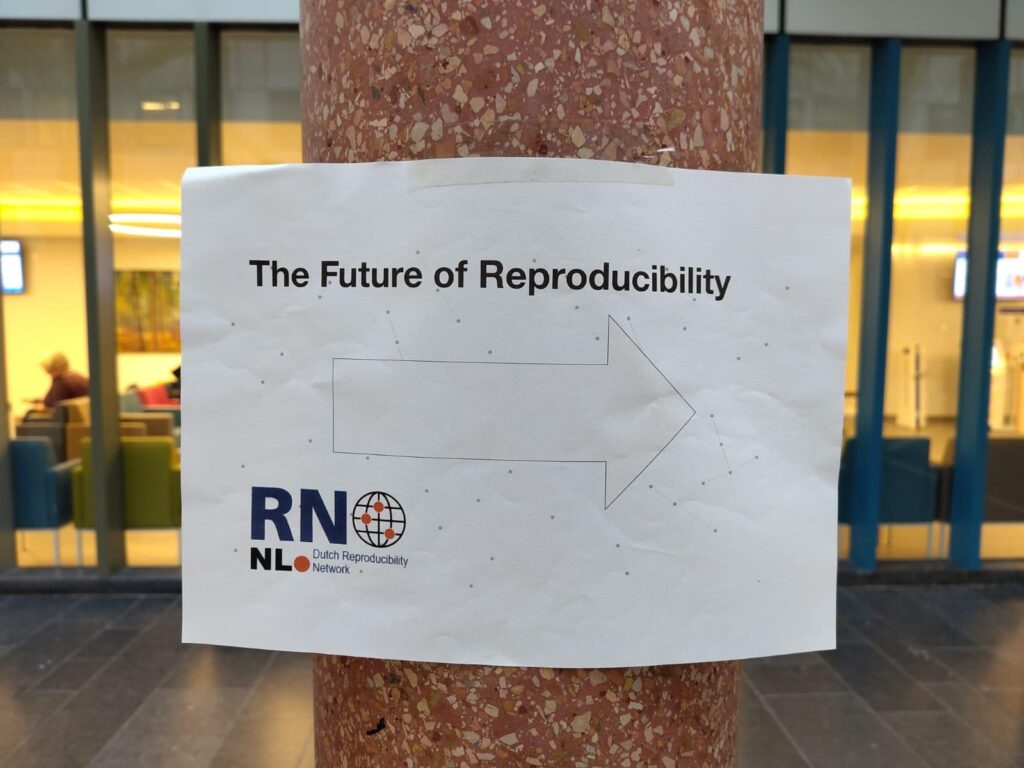… lies at the end of long corridors
Under the theme of “The Future of Reproducibility”, about 100 scholars, policymakers, funders, researchers, science enthusiasts and facilitators met at the UMCG for a day of interaction, discussion and new connections.
Casper Albers, the head of the Open Science Program in Groningen welcomed us and kicked off the plenary morning session, underscoring the importance of retaining the focus on rigorous, open science, even in a future where funding may be scarcer. The keynote speakers presented challenges and developments in research reproducibility from two different domains: Biomedical research and History. Tracey Weissgerber shared how open research evolved in the biomedical sciences and called for a look beyond reproducibility to foster responsible and robust research results. Pim Huijnen and Pieter Huistra presented their work on reproducibility in history. They shared their insight from an interpretative field and highlighted how the domain of history needs to find its own definition of what reproducible scholarship means – and how this affects the choice of tools to achieve this reproducibility.

The seemingly endless corridors of the medical center brought people together to discuss the presentations while reaching individual step counts. The lunch area was filled with chatter of mingling as new connections formed around poster topics including a chatbot for training materials and a crowdfunding platform for replication studies.
In the afternoon, participants followed workshops on reproducibility-related topics. The participants of the lego workshop experienced hands-on what it means to work with limited metadata. Attendees could also get a glimpse of the current status of interventions to promote reproducibility and think about how they would promote reproducibility in their groups. The discussions on research integrity and applied research carried over to the coffee break, where attendees mingled and had a chance to meet the poster presenters.
The lively closing session featuring early career professionals sparked discussions around preventing dreaded futures of science communication, including how to avoid weaponization of skepticism to stir distrust in science.
You can find the materials (posters and slide decks) here on Zenodo and the recording of the keynotes here.
